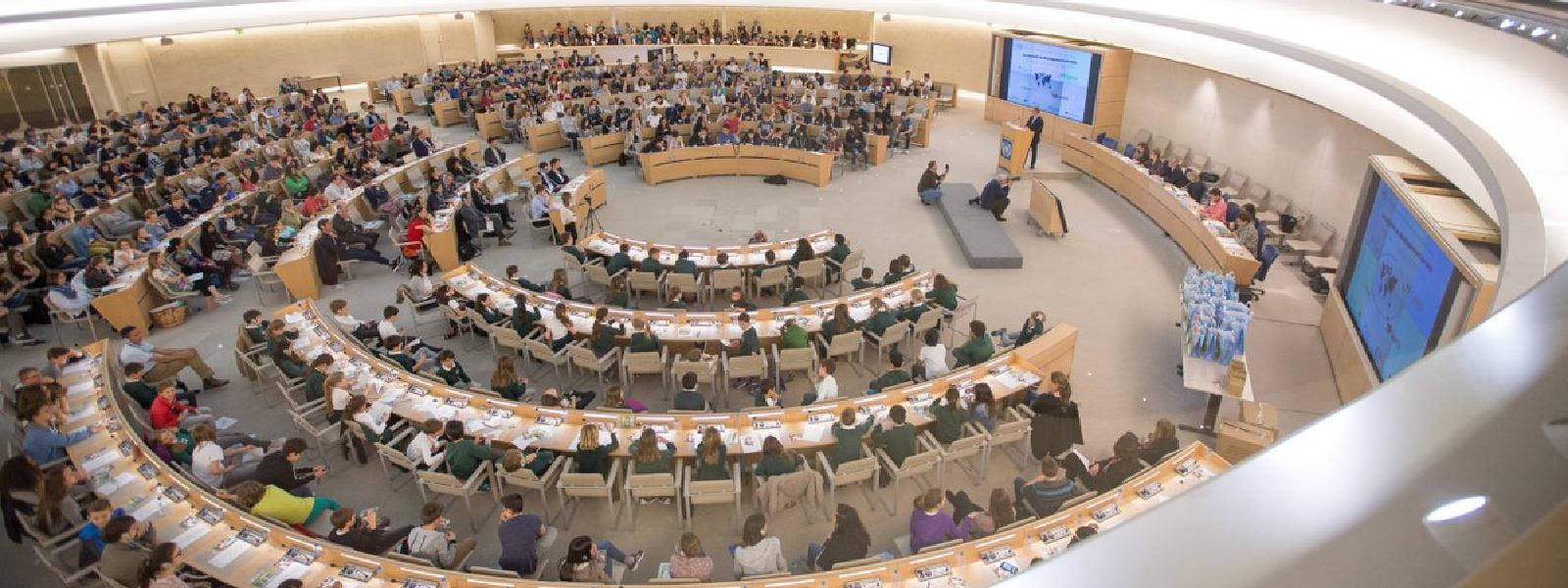.webp)

How will Sri Lanka's new administration respond to the propositions of the UNHRC this September?
The 51st session of the United Nations Human Rights Council will convene between the 12th of September and the 7th of October. Sri Lanka is to send over a delegation headed by Minister of Foreign Affairs Ali Sabry and a team of officials from the Foreign Ministry and the Attorney general's department.
At the 50th session held in June and July of this year, whilst the UNHRC condemned the supression of protestors, the Sri Lankan delegation headed by foreign minister at the time, G. L. Pieris postulated a rather hapless, pitiful appeal to the UNHRC in Geneva; stating that the country needed the empathy and understanding of the international community and furthermore the space to deal with the present socio-economic issues. In July, the subjects of police brutality, lack of military accountability and the overall collapse of Sri Lankan democracy were raised. It is expected that the delegation heading to Geneva this month will be tasked with addressing similar points of discussion with a focus on how the economic crisis has spiralled into a humanitarian crisis with escalating levels of unemployment and poverty.
Ahead of arriving at the 51st session in Switzerland, Ali Sabry held a press conference to address the most pressing questions regarding the agenda of the Sri Lankan delegation at the UNHRC. Sabry made statements indicating that the fundamental priority of the nation is economic recovery alongside securing the IMF loan, and this will be presented by the delegation at The Council meeting. Sabry also stressed that despite Sri Lanka's endeavour to build cordial relations with the international community, the country is bound by the constitution; "we are bound to protect the constitution. So whatever the solution wether its acountability or anything else, we have to provide that within the framework of the Sri Lankan constitution".
The overarching theme of the Sri Lanka UNHRC delegation is pursuing solutions that are purely within the framework of the Sri Lankan constitution. Sabry's delegation has recieved stringent instructions from the centre not to pursue reccommendations or proposals advanced by the Council if they require action outside the parametres of the sovereignty or constitution of Sri Lanka.
Resolutions 30/1 (2016) and 46/1 (2021) drawn up by the UNHRC suggests that Sri Lanka work with external enmities (such as hybrid courts) to "Promoting reconciliation, accountability and human rights in Sri Lanka". When questioned about the positon of the visiting delegation, Sabry responded that "we are willing to discuss with the UNHRC but the solution should lie within the constitution" if not, it would have to be disregarded.
The issue was raised of how the UNHRC resolution 30/1 was co-sponsored by the Wickremesinghe adminstration in 2015 but rejected by Gotabhaya government in the latest sessions. What will be the position of the current government, A hybrid or coalition of ministers/politicians from all majority parties? The stand is that any judicial process should be in keeping with the Sri Lankan constitution, any external process that tries to pressurise and take power away from Sri Lankan sovreignty is not agreeable.
The agenda in Geneva will be the implementation of a tangible truth seeking mechanism to implement programs to grant alleged perpetrators and victims of the civil war redemption, in an attempt to work towards post-war recconcilliation.
Ahead of the UN meeting, China has already pledged its support to Sri Lanka at the Council. As the delegation departs for Switzerland today the 5th of September, the nation anticipates exceptional representation at one of the most esteemed gatherings in international politics.
Other Articles
Featured News





.png )


-797273_550x300.jpg)






















.gif)